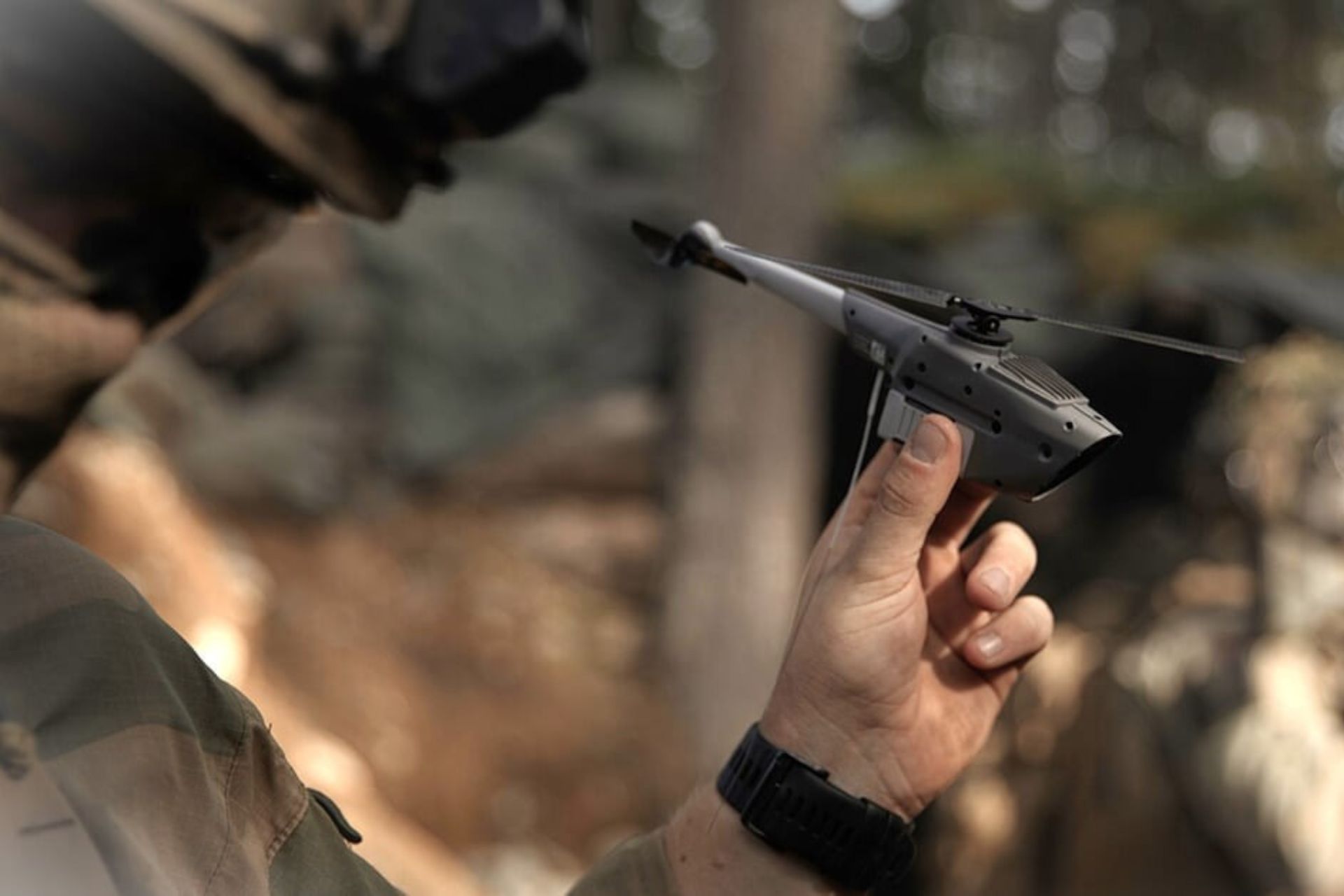US Army awards Teledyne FLIR Defense contract for Black Hornet 4 Nano-UAS

{loadposition bannertop}
{loadposition sidebarpub}
On 22 October 2024, Teledyne FLIR Defense, a division of Teledyne Technologies Incorporated, was awarded a contract worth up to $91 million to supply the US Army with its Black Hornet 4 nano-unmanned aerial systems (UAS). This new contract, which spans five years, is part of the Soldier Borne Sensor (SBS) program’s Phase II. With $25 million allocated for the initial order, this includes the delivery of the first batch of Black Hornet 4 drones, along with controllers, spare parts, and training for the US Army. Deliveries began in September 2024.
Follow Army Recognition on Google News at this link
The drone’s speed has also increased to 36 km/h, making it more adaptable to challenging environments, particularly those with stronger winds (Picture source: Teledyne FLIR Defense)
The Black Hornet 4 system, unveiled a year ago, represents an advancement over its predecessor, the Black Hornet 3, with improvements such as a more advanced thermal sensor, electro-optical (EO) camera, and enhanced navigation systems. It is designed for ease of use, being lightweight and portable, allowing soldiers to quickly deploy the drone for real-time situational awareness. Key improvements in the Black Hornet 4 include increased endurance, allowing the system to operate for 35 minutes, and a higher altitude capability, now reaching up to 20,000 feet. The drone’s speed has also increased to 36 km/h, making it more adaptable to challenging environments, particularly those with stronger winds.
Teledyne FLIR has been supplying nano-UAS systems to the US Army since 2018, when the Black Hornet 3 was first introduced under the SBS program. Over the years, the army has invested more than $215 million in these systems, which are now used for surveillance and reconnaissance operations in over 40 countries. The compact and lightweight Black Hornet allows soldiers to gain crucial information about their surroundings while minimizing risk by keeping them in protected positions.
According to Dr. JihFen Lei, president of Teledyne FLIR Defense, the Black Hornet 4 is considered the most advanced nano-UAS available today, capable of supporting high-risk missions with greater efficiency and reliability. The system has been widely recognized for its ability to enhance battlefield situational awareness, and its continued use by the US Army underscores its importance in modern military operations.
As Teledyne FLIR continues to expand its role in supporting the US Army, the total investment in Black Hornet systems is expected to exceed $250 million by 2030, reflecting the growing demand for these technologies in global military operations.

{loadposition bannertop}
{loadposition sidebarpub}
On 22 October 2024, Teledyne FLIR Defense, a division of Teledyne Technologies Incorporated, was awarded a contract worth up to $91 million to supply the US Army with its Black Hornet 4 nano-unmanned aerial systems (UAS). This new contract, which spans five years, is part of the Soldier Borne Sensor (SBS) program’s Phase II. With $25 million allocated for the initial order, this includes the delivery of the first batch of Black Hornet 4 drones, along with controllers, spare parts, and training for the US Army. Deliveries began in September 2024.
The drone’s speed has also increased to 36 km/h, making it more adaptable to challenging environments, particularly those with stronger winds (Picture source: Teledyne FLIR Defense)
The Black Hornet 4 system, unveiled a year ago, represents an advancement over its predecessor, the Black Hornet 3, with improvements such as a more advanced thermal sensor, electro-optical (EO) camera, and enhanced navigation systems. It is designed for ease of use, being lightweight and portable, allowing soldiers to quickly deploy the drone for real-time situational awareness. Key improvements in the Black Hornet 4 include increased endurance, allowing the system to operate for 35 minutes, and a higher altitude capability, now reaching up to 20,000 feet. The drone’s speed has also increased to 36 km/h, making it more adaptable to challenging environments, particularly those with stronger winds.
Teledyne FLIR has been supplying nano-UAS systems to the US Army since 2018, when the Black Hornet 3 was first introduced under the SBS program. Over the years, the army has invested more than $215 million in these systems, which are now used for surveillance and reconnaissance operations in over 40 countries. The compact and lightweight Black Hornet allows soldiers to gain crucial information about their surroundings while minimizing risk by keeping them in protected positions.
According to Dr. JihFen Lei, president of Teledyne FLIR Defense, the Black Hornet 4 is considered the most advanced nano-UAS available today, capable of supporting high-risk missions with greater efficiency and reliability. The system has been widely recognized for its ability to enhance battlefield situational awareness, and its continued use by the US Army underscores its importance in modern military operations.
As Teledyne FLIR continues to expand its role in supporting the US Army, the total investment in Black Hornet systems is expected to exceed $250 million by 2030, reflecting the growing demand for these technologies in global military operations.




